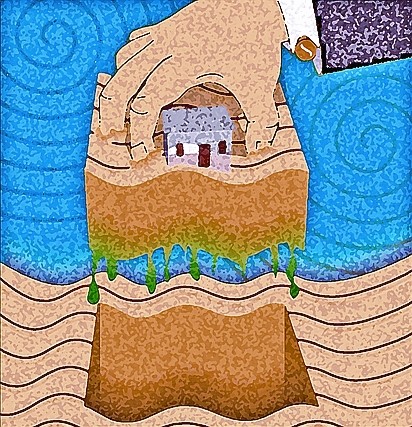 Our master’s program is unique in that it deals with cooperation, sustainability, and emergency situations both in developed in developing contexts. We thought we would highlight an article published in today’s Barcelona newspaper El Periódico, due to its relevance to our local collaboration with “Eviction City” Ciutat Meridiana as well as our work in places like Brasil or past partnerships with entities like UN Habitat.
Our master’s program is unique in that it deals with cooperation, sustainability, and emergency situations both in developed in developing contexts. We thought we would highlight an article published in today’s Barcelona newspaper El Periódico, due to its relevance to our local collaboration with “Eviction City” Ciutat Meridiana as well as our work in places like Brasil or past partnerships with entities like UN Habitat.
In the article, the new director of Intermón Oxfam, José María Vera, draws a poignant parallel between the evictions that are causing public outcry in Spain and the all-too-common land grabs in developing countries that rob thousands of poor rural families of their livelihoods.
“In Spain, thousands of vulnerable families are ousted from their homes, often strangled by a mortage debt for life. In Latin America and Africa, thousands of families are forced off their farming lands by multinational companies that acquire millions of hectars in land.”
The alarming growth of land grabs in developing countries has seen over 100 million hectars of land acquired by international investors over a span of 10 years. In most cases, the product grown by foreign companies is exported for the production of biofuels, replacing an area that could feed millions of starving people.
Vera points out the common denominators of both apparently very different situations. On the one hand, the human side effects of fear, impotence, anger and loss, and on the other, the economic threat to livelihoods. According to the International Land Coalition, these evictions from homes and land constitute a violation of the human right to housing.
He also compares the lack of transparency in negotiations: While big companies often coax humble peasant farmers with complex contract clauses into a raw deal, in Spain and just about everywhere else, the small print gave banks an edge over homeowners, consequently taking its toll on society’s stability and well-being.
Vera criticizes the elusion of democratic planning, independent supervision and participation, citing the Spanish government’s sluggishness in putting a stop to unust evictions, or to the preceding real estate bubble, for that matter.
He concludes that social movements–whether in the form of grass-roots organizations in support of evicted homeowners here in Spain, or united rural farmers’ movements in Africa supported by organizations like Intermón Oxfam–are leading the way: true change lies in the hands of the people.
The entire article is availabe online at El Periódico via subscription only.

